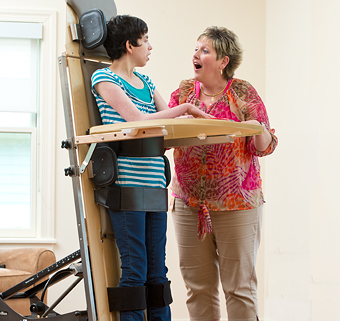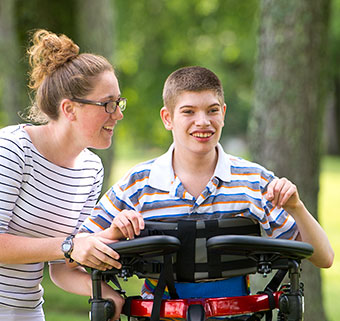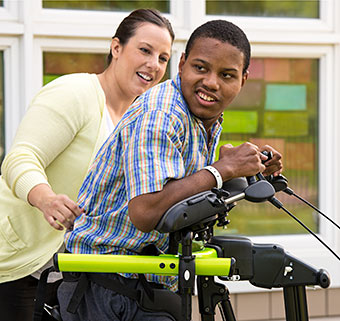Evidence Update: Finally, a Compelling Case for Coverage for Adaptive Bikes
New Policy Brief Highlights the Health Benefits of Cycling for People with Disabilities and Charts a Path Forward
| June 2023 Clinicians of all stripes have known for years that their patients with neurodevelopmental disabilities (NDD) benefit from biking – it almost goes without saying. However, health insurance coverage for adaptive bikes has been rare at best, and this needs to change.
Clinicians of all stripes have known for years that their patients with neurodevelopmental disabilities (NDD) benefit from biking – it almost goes without saying. However, health insurance coverage for adaptive bikes has been rare at best, and this needs to change.
Thanks to the work of Mary Gannotti, a professor of physical therapy at the University of Hartford, and her team of four fellow academics, a recently published policy brief sheds light on the clear physical and psychosocial benefits of cycling equipment for the NDD population. It builds a strong case, drawing on existing and compelling research which shows that adaptive bikes should be recognized as durable medical equipment, and that they are, in fact, medically necessary for people with NDD.
Broadly speaking, payers have not yet recognized the immediate and life-long health improvements (with the corresponding reductions in health costs) that stem directly from access to daily adaptive cycling.
The brief effectively dismantles this policy flaw and provides regulatory and legislative paths to change.
It also explains that advocacy is not just for the obvious health benefits conferred by adaptive cycling; it is also an ethical imperative. Our restrictive definition of durable medical equipment effectively denies access to cycling for the NDD community. As a result, we expose this population to a host of comorbidities. If this is to change – and it must – then this policy brief can become an essential tool to effect that change.
Reference:
Gannotti ME, O’Neil ME, Fragal-Pinkham M, Gorton III GE, Whitney DG. Policy brief: Adaptive cycling equipment for individuals with neurodevelopmental disabilities as durable medical equipment. Front Rehabil Sci. 2023 Jun 5;4:1160948. doi: 10.3389/fresc.2023.1160948.







